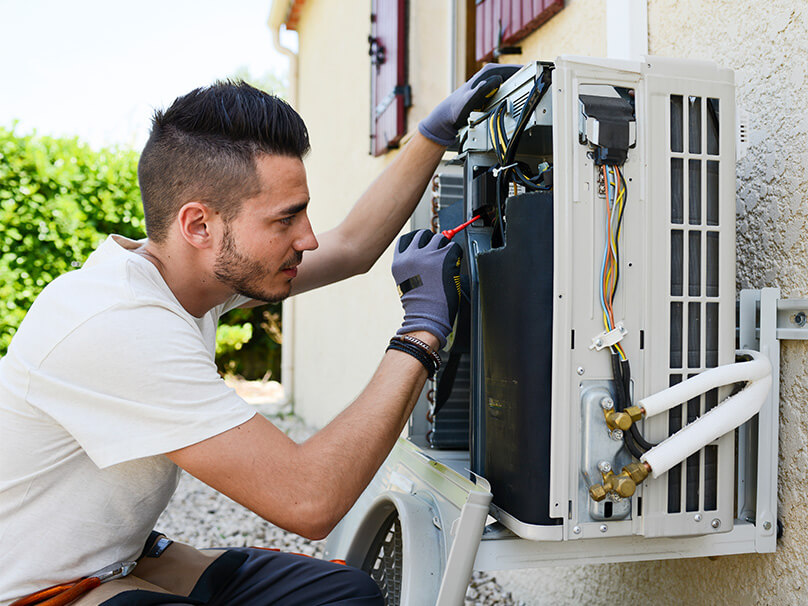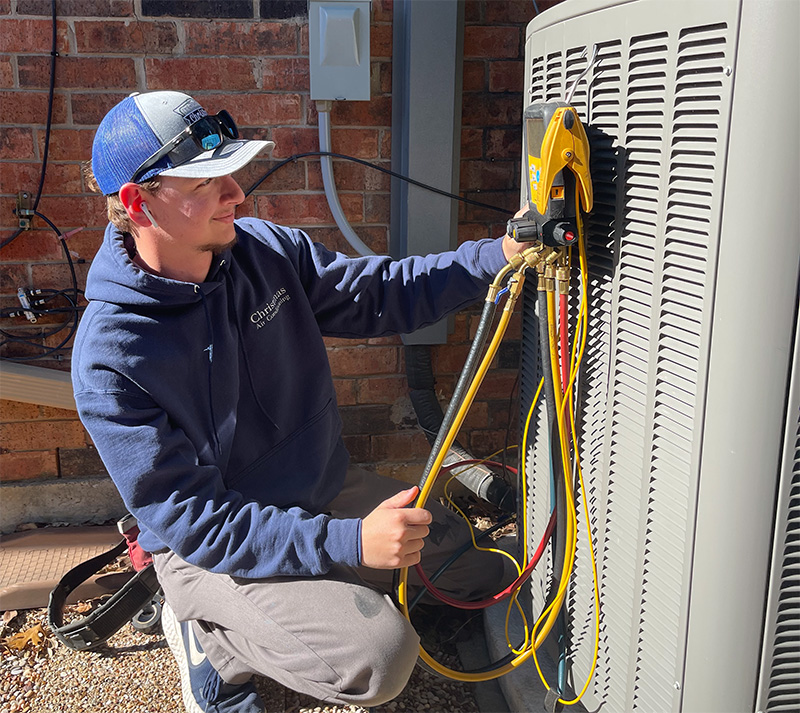Some Known Details About Ac Air Conditioner Repair
: Expert Cooling System Repair Ensures Your Home Stays Comfortable All Year Round
Kinds Of Air Conditioning Systems
When taking on a/c repair work, understanding the kind of a/c system you're handling can save time, cash, and aggravation. Ever questioned why some units cool a room faster than others? Or why certain systems appear to break down more regularly? Let's peel back the layers.
Central Air Conditioning
Some Known Questions About Ac Air Conditioner Repair.
Imagine a cool breeze streaming through a whole home, whispering comfort into every corner. Central air systems do exactly that. They use a network of ducts to distribute cooled air, relying on a compressor and condenser outside, coupled with an evaporator coil inside. When this complex monster falters, identifying the issue can be like finding a needle in a haystack.
Split Systems

Split systems are a popular choice for lots of homes-- part indoor system, part outdoor compressor. They provide flexibility and effectiveness, however their double nature suggests repair can include either element. Have you ever heard an odd noise outside your house only to find the indoor unit isn't cooling? That's a traditional indication of a split system problem.
The Best Strategy To Use For Ac Fixing
Window Units
These compact warriors battle summer season heat by fitting comfortably into a window frame. They integrate all parts into a single box. Their simplicity frequently indicates less repair headaches, but overlooking filters or enabling particles buildup can result in lessened efficiency or breakdowns.
Ductless Mini-Splits
Not known Facts About Ac Air Conditioner Repair
Ductless systems bypass ductwork totally, making them perfect for homes without existing ventilation. They're peaceful, efficient, and surprisingly resilient. Yet, when repairs are required, specialists need to be skilled at dealing with refrigerant lines and electrical connections-- no little feat.
Quick Recommendation Table
| Type | Key Features | Typical Repair Work Issues |
|---|---|---|
| Central Air | Ductwork, whole-house cooling | Duct leakages, compressor failure |
| Split System | Indoor & & outdoor units | Refrigerant leakages, fan motor problems |
| Window System | All-in-one, easy installation | Dirty filters, electrical faults |
| Ductless Mini-Split | No ducts, zoned cooling | Line leakages, sensing unit breakdowns |
Ac Repair Near Me - Questions
Deciphering the Most Frequent AC Problems
Have you ever wondered why your a/c unit suddenly stops cooling during a sweltering afternoon? One typical offender is an unclean or blocked air filter. This tricky bad guy restricts airflow, requiring your system to work overtime, which not only lowers efficiency but can likewise result in early breakdowns. Picture attempting to breathe through a scarf taken in dust-- it's tiring!
Another regular misstep is refrigerant leaks. These unnoticeable leakages do not just reduce cooling power but can also damage the compressor, the heart of your a/c system. How often do you look for uncommon hissing noises or ice formation on the coils? Capturing these signs early can save you from pricey repairs down the line.
Beyond the Basics: Lesser-Known Issues
Indicators on Air Conditioning Repair Near Me You Need To Know
Sometimes, the thermostat itself is the troublemaker. Miscalibrated or faulty thermostats send blended signals, triggering the air conditioner to cycle unpredictably. Ever skilled your a/c switching on and off in quick succession? That's called brief cycling, a sly effectiveness drainer that can wear out elements much faster than you 'd anticipate.
Electrical problems, such as worn circuitry or a malfunctioning capacitor, may prowl underneath the surface. Air Conditioner Repair Near Me. These typically manifest as AC systems failing to begin or all of a sudden closing down. An expert eye knows to check these components with precision tools, something a casual glance will not reveal
Expert Tips for Diagnosing Common A/c Problems
Fix Air Conditioner for Dummies
- Examine and replace air filters regularly-- every 1 to 3 months depending on usage and environment.
- Listen for uncommon noises like rattling or buzzing that might indicate loose parts or electrical faults.
- Check the outside unit for particles or blockages that restrain air flow and trigger getting too hot.
- Try to find frost buildup on evaporator coils, a tip towards refrigerant issues or air flow constraints.
- Check the thermostat settings and recalibrate if the temperature readings feel off.
Quick Referral Table: Manifestation & & Probable Triggers

| Sign | Probable Cause | Professional Idea |
|---|---|---|
| Warm air blowing | Low refrigerant or unclean coils | Clean coils and look for leaks right away |
| Short cycling | Thermostat concerns or extra-large unit | Change thermostat settings and seek advice from sizing standards |
| System will not start | Electrical faults or capacitor failure | Test circuitry and replace capacitors as needed |
| Water leakage | Clogged drain line or frozen evaporator | Clear drain lines and check for coil icing |
DIY Air Conditioning Upkeep Tips
Fascination About Ac Repair
Ever discovered your air conditioner sputtering like an old engine on a hot summer day? Neglecting subtle signs frequently suggests more than simply a sweaty afternoon-- it's a prelude to unexpected a/c repair work expenses. What if here you could catch those whispers before they turn into wails? Routine DIY maintenance can be your first line of defense.
Easy Steps to Keep Your Air Conditioning Running Efficiently
The Single Strategy To Use For Ac Repair
- Clean or Change Filters: A clogged up filter is like trying to breathe through a scarf. Every 1-3 months, check and swap out your filters. It enhances air flow and performance, preventing compressor pressure.
- Examine the Condenser Coils: Dust and particles function as undetectable blankets smothering your unit's cooling power. Carefully brush or vacuum the coils, but avoid harsh chemicals that may deteriorate the metal.
- Examine the Drain Line: When was the last time you looked at your drain pan? A clogged up drain can cause water leaks and foster mold growth. Flushing it with a vinegar solution regular monthly keeps the flow clear.
- Seal and Insulate: Are your ductworks whispering leaks? Sealing gaps with mastic or foil tape boosts effectiveness and reduce irregular cooling.
Pro Tips Beyond the Fundamentals
- Measure your unit's voltage to capture subtle electrical wear before it triggers big problems.
- Listen for uncommon hums or rattles-- these acoustic breadcrumbs typically indicate loose parts or stopping working motors.
- Keep outside systems shaded but guarantee a minimum of 2 feet of clearance around them for optimum air flow.
Ask yourself: Are you hearing your air conditioning's peaceful SOS or just awaiting it to shout? Requiring time for DO IT YOURSELF a/c maintenance changes reactive repair work into proactive care, saving sweat, stress, and yes, cash.
Fix Air Conditioner Fundamentals Explained
Why Proficiency in Air Conditioning Repair Work Matters
Imagine this: your air conditioner system sputters and groans during a scorching afternoon, leaving you sweltering inside your home. Would you trust a novice fumbling with fragile parts, or would you look for the reassurance of a expert AC service technician!.?.!? The intricacies of contemporary cooling systems demand accuracy and experience. A minor mistake can escalate a minor breakdown into a pricey catastrophe.
Get This Report on Air Conditioning Repair Near Me
Hidden Intricacies Behind the Cool Breeze
Numerous ignore the layers hidden underneath the smooth outside of an a/c unit - Repair Air Conditioner Near Me. From refrigerant leakages that quietly drain performance to faulty thermostats that misread temperatures, these concerns need more than a fundamental toolkit. Specialists possess a keen eye for detecting issues that balance property owners neglect
Necessary Tips for Selecting the Right Service Technician
The Only Guide to Ac Repair Near Me
- Certification and Training: Confirm credentials; a specialist trained in the current heating and cooling technologies is vital.
- Experience with Specific Systems: Not all a/c systems are created equal; find somebody knowledgeable about your model's quirks.
- Diagnostic Approach: Competent professionals use advanced tools-- like electronic leak detectors and thermal imaging-- to identify hidden faults.
What to Anticipate from a Pro's Diagnostic Process
| Step | Purpose | Professional Insight |
|---|---|---|
| Visual Assessment | Recognize obvious wear or damage | Search for deterioration or uncommon sounds-- an obvious indication frequently ignored |
| Pressure Checking | Discover refrigerant leaks | Subtle pressure drops can hint at micro leakages undetectable to the naked eye |
| Electrical Checking | Make sure circuit integrity | Loose connections can imitate severe mechanical failures |
The Buzz on Ac Repair
Why Do It Yourself Frequently Falls Short
Tempting as it is to play with your AC system, DIY fixes often miss out on the origin. For example, complementing refrigerant may briefly cool your space but ignores leaks that intensify with time. Professional professionals don't just spot symptoms; they hunt down the underlying mechanical and electrical faults that sap efficiency.
More About Air Conditioning Repair
Questions to Ask Before Hiring
- What diagnostic tools do you utilize to recognize concerns?
- Can you describe the repair work procedure and anticipated outcomes?
- Are you acquainted with the refrigerants suitable with my system?
- Do you follow safety protocols for managing electrical elements?
Comments on “The 5-Minute Rule for Ac Repair Near Me”